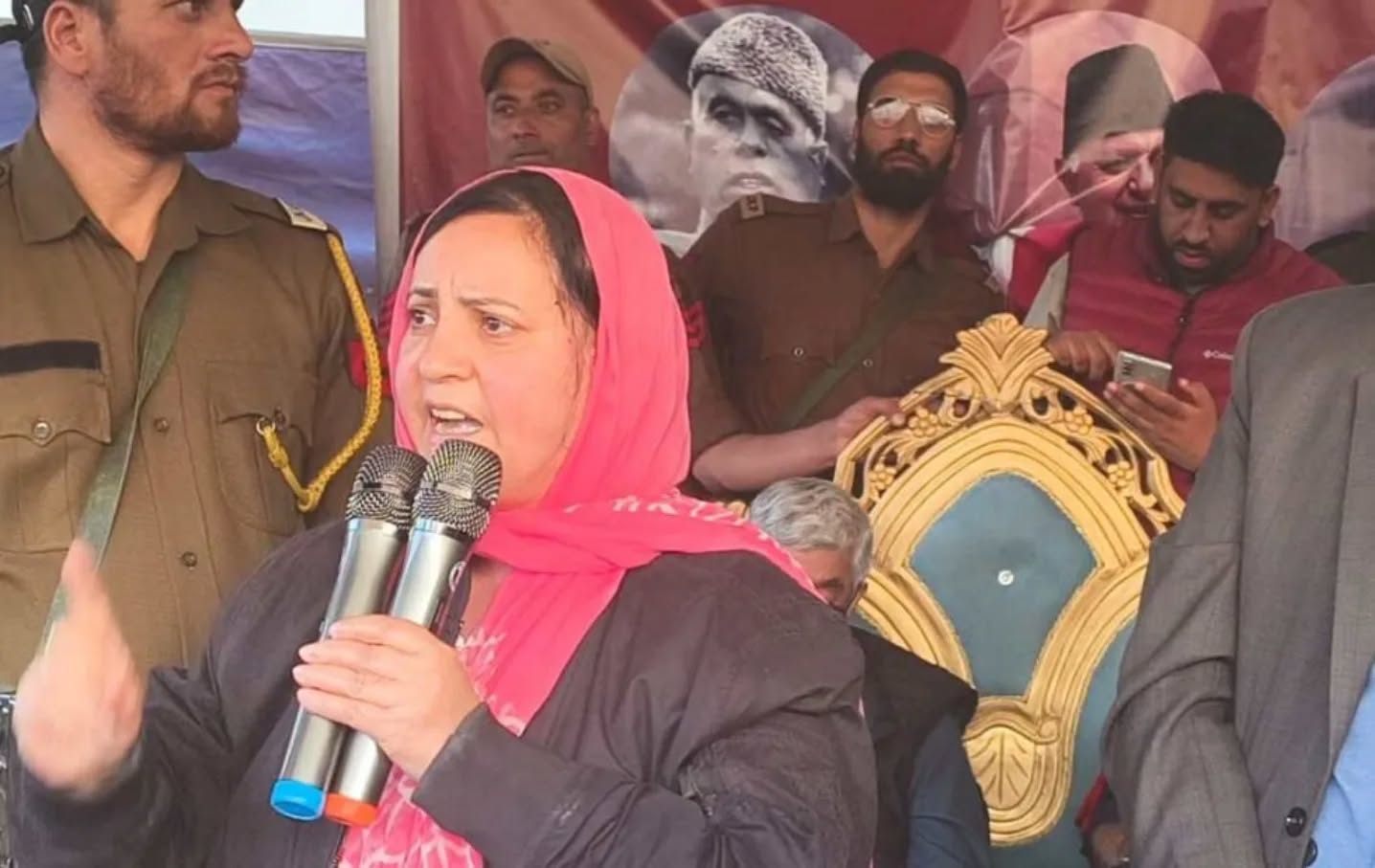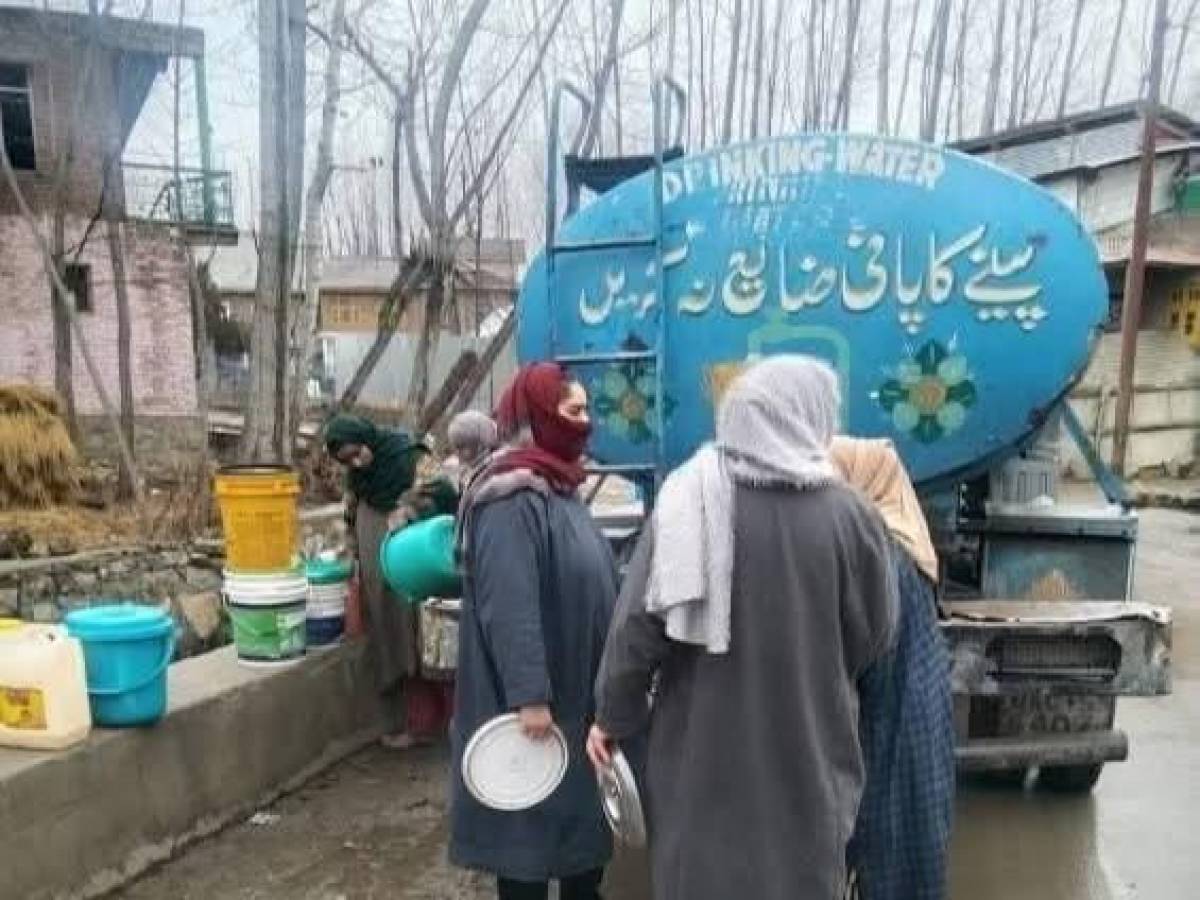As the Vande Mataram row deepens, Sakina Itoo accuses regional parties of mishandling cultural sensitivities, saying their silence and contradictions helped BJP gain political ground in Jammu & Kashmir.
By: Javid Amin | 08 November 2025
Senior Jammu and Kashmir leader Sakina Itoo has sparked fresh debate by alleging that regional parties in Kashmir indirectly facilitated the BJP’s political entry into the Valley — through repeated mishandling of cultural and national issues such as the ongoing Vande Mataram controversy.
Her sharp remarks come at a time when Kashmir’s political atmosphere is already tense following Chief Minister Omar Abdullah’s denial of authorizing Vande Mataram programmes in schools, and the subsequent uproar by religious and civil groups across the region.
“They Created the Space for BJP” — Sakina Itoo’s Statement
Speaking to local reporters in Srinagar, Itoo — one of the few prominent women politicians in Jammu and Kashmir — said the regional political class bears collective responsibility for letting the BJP consolidate its influence in the Union Territory.
“By avoiding national symbols, by distancing themselves from inclusive narratives, and by playing both sides, these parties created the space for BJP to step in,” she said.
“Today, they complain about cultural imposition, but it is they who abandoned the language of national engagement when it mattered most.”
Itoo, who has served as a minister in earlier coalition governments, argued that symbolic resistance without political strategy has only weakened Kashmir’s voice in Delhi and fragmented its internal unity.
Backdrop: The ‘Vande Mataram’ Controversy
The controversy began after the Department of Culture in Jammu and Kashmir issued a directive to celebrate the 150th anniversary of Vande Mataram across schools and government institutions.
The circular instructed mass recitations, cultural performances, and musical tributes to the national song — sparking protests from religious bodies like the Mutahida Majlis-e-Ulema (MMU), which termed the move “un-Islamic” and called for its withdrawal.
Omar Abdullah, the Chief Minister, quickly distanced his administration from the directive, claiming it was “outside dictation” and had not been approved by his Cabinet or Education Department.
In contrast, Lieutenant Governor Manoj Sinha presided over the main celebration in Jammu, signaling a governance rift between the elected leadership and the LG’s office.
Political Fallout: BJP vs Valley Parties
The row soon turned political.
BJP leaders, including National General Secretary Tarun Chugh, accused Omar Abdullah and other regional figures of “appeasement politics” and being “allergic to national pride.”
“Opposition to Vande Mataram is not about religion — it’s about hatred for India,” Chugh claimed.
Sakina Itoo’s statement added another layer to the debate — suggesting that regional parties’ reluctance to engage with national symbols allowed the BJP to rebrand patriotism as its exclusive domain.
“When local parties avoided open discussions about national identity, they ceded moral ground. The BJP used that vacuum smartly,” Itoo said.
Cultural Sensitivity or Political Mismanagement?
Observers note that the Vande Mataram issue reflects a deeper identity crisis in post-Article 370 Kashmir.
While many residents express discomfort with enforced cultural directives, others believe outright boycotts play into the BJP’s narrative of “Kashmiri exceptionalism.”
Political analyst Dr. Shabir Lone explains:
“Sakina Itoo’s remarks highlight an uncomfortable truth — that mainstream parties oscillate between appeasement and assertiveness. This inconsistency weakens their moral claim to represent Kashmir’s plural identity.”
A Divided Response Within Kashmir’s Political Circles
While the National Conference (NC) and PDP have not officially responded to Itoo’s remarks, party insiders privately admit that her critique “isn’t entirely wrong.”
Some leaders within these parties acknowledge that reactive politics — opposing every central initiative — has contributed to public fatigue and a trust deficit with younger voters.
In contrast, BJP leaders in Jammu welcomed Itoo’s statement.
“Even opposition leaders now admit the BJP filled a vacuum created by decades of double-speak,” said a local BJP spokesperson.
From Cultural Symbol to Political Weapon
The Vande Mataram controversy has now evolved from a school-level directive into a statewide political confrontation — symbolizing the larger battle over who defines nationalism and cultural expression in Jammu & Kashmir.
For the BJP, the episode reinforces its message of integration and unity under one national identity.
For regional parties, it exposes the perils of balancing religion, regional pride, and national expectations in a politically sensitive region.
Sakina Itoo’s Broader Message: Reclaim the Middle Ground
In her concluding remarks, Sakina Itoo urged political leaders in the Valley to reclaim the “middle ground” — one that respects religious sensitivity while embracing national identity.
“We must represent Kashmir as part of India with dignity, not with hesitation. The BJP grew in our silence — it’s time to speak the language of inclusion ourselves,” she said.
Her comments, though controversial, have reopened a crucial conversation about how regional politics in Jammu and Kashmir interacts with the idea of India, especially in an era of heightened nationalism and administrative centralization.



